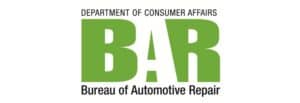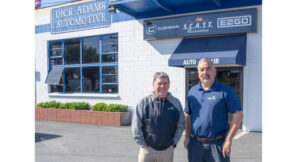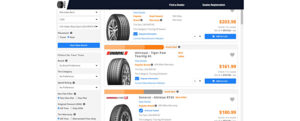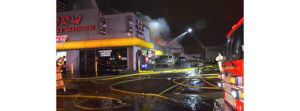
Steven E. Schillinger is a P.E. and PBE consultant in addition to being “actively retired.” He can be reached at schillingersteven@gmail.com and linkedin.com/in/seschillinger.
The pros and cons of electronic verification, E-Verify, during the Coronavirus pinpoint some important considerations
California has launched a “Shop Safe Shop Local” campaign that will — to quote Gov. Gavin Newsom — “Lift up our small businesses, their employees, and the neighborhoods they serve.”
He continued to state, arguably, that “Together, we can help our local businesses succeed in this new marketplace – rallying Californians to safely spend locally and online, while amplifying resources to support small businesses and help all of our diverse neighborhoods thrive.”

The campaign, however, has ramifications for vehicle service and repair shops that generate hazardous materials. They must now have an identification verification number, which is used to identify the waste handler and track waste from the point of origin to its final disposal (“cradle to grave”). Any auto shop operator who fails to provide information during Covid-19 shall be subject to suspension of any and all identification numbers assigned and to any other enforcement action. The electronic verification is required by Health & Safety Code section 25205.15 and 25205.16.
The U.S. Government can now cross-link electronic verification qualification with the Department of Homeland Security in partnership with the Social Security Administration. Currently, 22 states – Alabama, Arizona, Colorado, Florida, Georgia, Idaho, Indiana, Louisiana, Michigan, Minnesota, Mississippi, Missouri, Nebraska, North Carolina, Oklahoma, Pennsylvania, South Carolina, Tennessee, Texas, Utah, Virginia and West Virginia require the use of electronic verification for at least some public and private sector shops.
“Many businesses have faced hardship due to the pandemic, contending with closures, decreased revenues and difficulty conducting training. However, California automotive shops are adapting to the new normal, integrating technology for regulatory authorities and developing creative ways to connect with clients digitally with innovations that meet the moment,” stated Wade Riddering, of Environmental Regulatory Compliance Assistance (wade@erc-llc.us).
The following pros and cons of electronic verification, “E-Verify,” during the Coronavirus pinpoint some important considerations:
THE PROS:
- While E-Verify is generally voluntary, some states require shops to use E-Verify, and it is mandatory for some federal government contracts.
- E-Verify could become mandatory nationwide. Adopting it earlier affords shops more time to become familiar with any national regulatory requirements.
- E-Verify helps shops avoid hiring and training a person not certified to use hazardous air pollution products.
- E-Verify can eliminate “No Match” letters notifying the shop that their documents do not match government records.
- Although using E-Verify does not provide a “safe harbor” from prosecution, it creates a “rebuttable presumption” that the shop has not violated government requirements.
- Some advantages to using E-Verify include that the system is designed to quickly verify employment eligibility.
- A shop that verifies employee hazardous air pollution certification enjoys a legal presumption that the shop did not knowingly hire a non-certified worker.
- Many vehicle manufacturers require service and repair shops to register their employees as hazardous air pollution certified or exempt. Product usage requirements are generally specified in a separate direct repair program contract.
- Using E-Verify may also help shops avoid receiving Social Security “No-Match” letters.
- After hazardous air pollution training of employees and dealing with the hazardous materials handling process, shops generally report that it is not difficult and that results are immediate.
THE CONS:
- E-Verify is not entirely free. Shops must allot time and resources to training and supervising staff and deal with the results of insurance company and regulatory agency queries.
- E-Verify makes mistakes, issuing certificates for workers who are authorized to use hazardous air pollution products, or stating “Employment Authorized” for workers who are not exempt.
- Tentative Non-Confirmations open shops up to new legal risks. For example, employees have sued shops for discrimination for not providing proper notice and instructions for contesting a Tentative Non-Confirmation.
- E-Verify can lead to liability for privacy and discrimination violations. Federal and state laws require the safeguarding information.
- Shops must make sure that their staff does not intentionally or accidentally misuse E-Verify data.
- Because the government can use E-Verify to mine data, it may find shops’ hiring mistakes that otherwise would not have been discovered.
- E-Verify has been known to have mismatch problems, thereby carrying a risk of erroneous exemption that expose a shop to legal action either for wrongful termination or for hiring an untrained worker.
- Signing up for E-Verify allows the Social Security Administration and Department of Homeland Security to audit your data.
- The E-Verify system has had maintenance issues, and is periodically off-line, therefore timeliness of submissions may be affected.
- E-Verify is not available when the U.S. government is “shut down.” After the database is opened for use again, there is often a very short period during which users can submit data for employees hired and trained during the shutdown, which can tax shop resources.
IN CONCLUSION
The annual Verification Questionnaire and fees assessment for hazardous waste ID numbers and hazardous waste manifests is required in California. Many other states are considering bills that would require the use of E-Verify.
Contrary to this trend, however, Illinois passed a law effectively prohibiting the use of E-Verify unless otherwise required by federal law, but it has agreed not to enforce this law pending Covid-19 litigation. The California Assembly also has approved a bill that would prohibit the state from using E-Verify unless otherwise required by federal law, e.g., National Emission Standards for Hazardous Air Pollutants: Paint Stripping and Miscellaneous Surface Coating Operations at Area Sources Code of Federal Regulations 40 CFR 63 Subpart HHHHHH (HAPs 6H).
Whether it makes sense for all shops nationwide to enroll in E-Verify depends on the particular circumstances of that shop and EPA, OSHA and Fire Marshal requirements. A shop should consider the states in which it conducts business, examine its current employee training certification procedures, and balance the pros and cons of government certified electronic verification.
As the “safe service and repair shop” situation evolves, government agencies will continue to advise their community on how we can achieve a collective commitment to public health and safety during the Covid-19 pandemic.







Comments are closed.